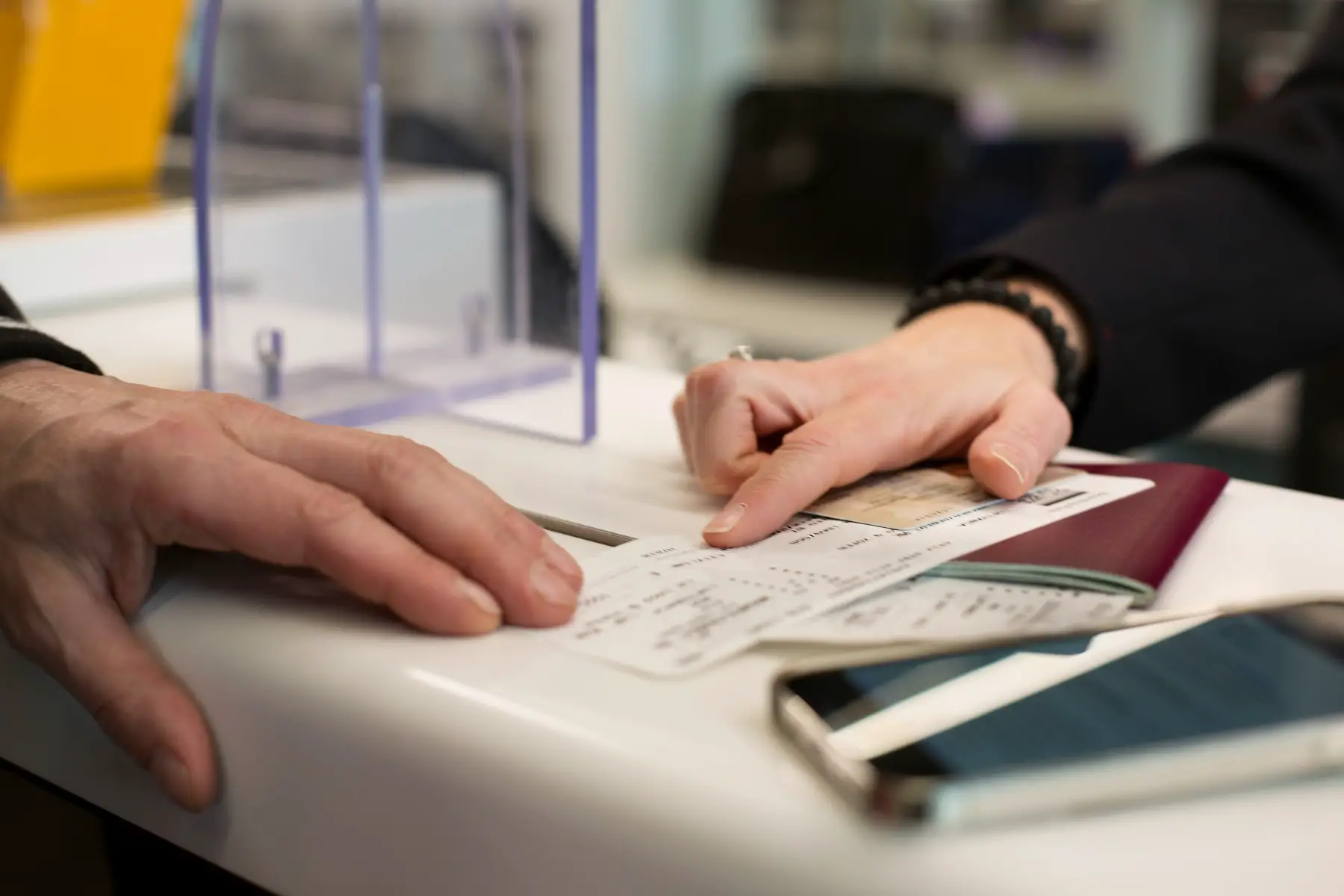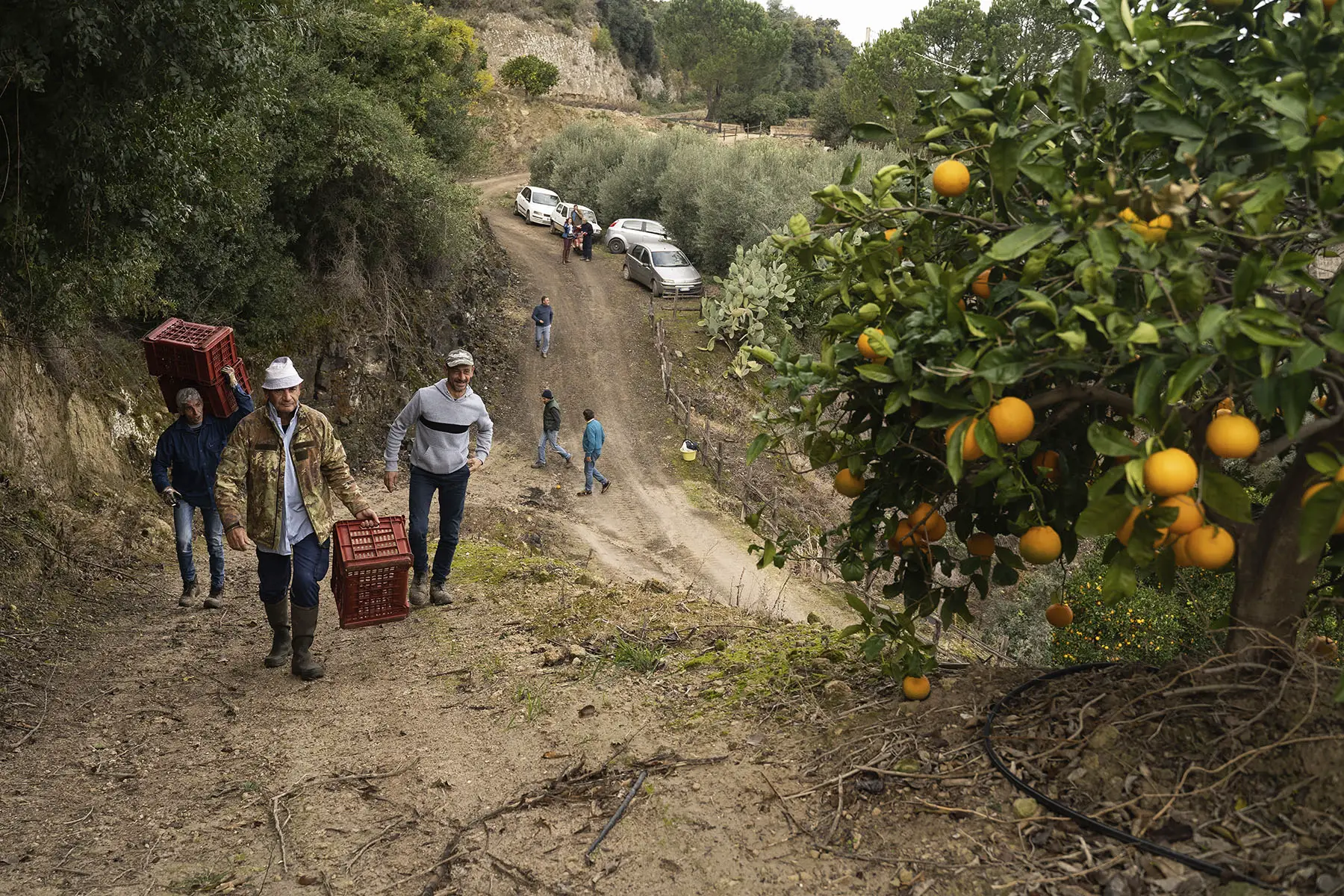Given its warm climate, world-famous cuisine, and healthy work-life balance, it is hardly surprising that Italy remains a popular destination for internationals. And fortunately for those considering moving to the country, there are plenty of job prospects across many different industries; particularly within tourism, fashion, car manufacturing, and pharmaceuticals.
That said, finding and applying for jobs in Italy can feel like a daunting task; especially if you face a language barrier. So, to help you begin your search, this article outlines the following:
- Working in Italy
- Requirements to work in Italy
- Finding a job in Italy
- Finding a job in Rome
- Finding a job in Milan
- Self-employment and freelancing in Italy
- Traineeships, internships, and volunteering in Italy
- Applying for a job in Italy
- Support while looking for a job
- Tips for finding a job in Italy
- Starting a job in Italy
- Useful resources
Resume.io
Trying to land the job that will take you on your next big adventure? Make sure your application is top of the pile with Resume.io's online resume builder. They provide resume templates, cover letter help, and more, making job applications effortless. Make it to the next round with Resume.io.
Working in Italy
The Italian job market
With more than 5 million expats calling Italy home in 2022, it is evident that the country remains an appealing destination for those looking to live and work abroad. And with a variety of working visas on offer for international talent, there are certainly options to explore.
Moreover, the Italian labor market is full of employers seeking qualified candidates for open roles; especially in the fields of engineering, information technology (IT), science, and healthcare. In fact, 38.3% of job vacancies still need to be filled across the country, meaning there is ample opportunity to find a role.

Some leading sectors within Italy’s job market include steel, textiles, agriculture, and – as you might expect – cars and tourism. However, as is the case in most countries, opportunities vary greatly across the regions of Italy.
For instance, while the south focuses mainly on tourism and agriculture, the north is home to larger corporations and banking. The job market within the larger cities such as Milan, Rome, and Naples, meanwhile, remains naturally competitive and varied across multiple industries.
However, despite these prospects, Italy’s economy still has its challenges. Indeed, although the country’s employment rate increased to 23 million in 2022 – the highest figure since 2004 – it has the fifth highest youth unemployment rate among OECD countries.
This is largely due to the continuing knock-on effect of the 2008 financial crisis and the COVID-19 pandemic. Italy’s employment gender gap is also among the highest in Europe, with women being less likely to secure jobs than men.
Job vacancies in Italy
There is hope on the horizon for Italy’s economy, though, as the country has a plan in place to foster economic growth and create more jobs. The National Recovery and Resilience Plan (Piano Nazionale di Ripresa e Resilienza, NRRP) is expected to boost Italy’s GDP by 1.5% to 2.5% by 2026 and bring 240,000 people into the workforce. This is good news for internationals looking to relocate to the country.
Salaries and minimum wage
The average monthly salary in Italy was €2,479 in 2022, which is significantly lower than in neighboring France (€4,130), and Austria (€4,540). However, given that the general cost of living in Italy is much lower than in these countries, it is a matter of relativity. After all, Italy ranks 35 on Numbeo’s Cost of Living Index, while France and Austria sit in position 21 and 26, respectively.

Of course, the amount that you can expect to earn will depend on the industry in which you work as well as your location. For instance, employees working in financial and banking services in Italy’s major cities enjoy the highest salaries while those working in agriculture, in the more rural areas, earn the lowest.
Interestingly, Italy is one of just six EU countries that does not have a statutory minimum wage. That said, around 95% of employees are covered by a collective agreement which is set by collective bargaining. This is where a group of employees (a trade union) acts together to dictate the minimum wage for a certain job.
Moreover, Article 36 of the Italian Constitution includes the right of every worker to earn a livable wage for themselves and their family. That said, there is an ongoing debate about whether or not to impose a minimum wage in Italy, with proposals to set it between €8.25 and €9.65.
Italian labor laws and employee rights
Italy’s Constitution guarantees that all citizens are given the right to work, receive fair pay, and take paid leave.
Similar to the minimum wage, most Italian labor rights are set through collective bargaining agreements between trade unions and employers, rather than the Constitution itself. This perhaps explains why Italy has the highest number of trade unions of any country in the EU; along with generous and protective maternity leave (two months before and three months after childbirth).
Article 36 of the Italian Constitution also outlines that the normal working week never exceeds 40 hours. Anything more than this is classed as overtime and should only be occasional, or due to exceptional reasons that can’t be solved by hiring new employees. Different overtime limits are also fixed by collective agreements.
Under Italian labor law, overtime must be paid with an increase of at least 10% over the regular rate, however, this can in fact amount to 30% of the basic rate after taking into account the remuneration an employee earns; such as any bonuses or allowances for night or shift work).
Notably, the Italian Constitution also includes an anti-discrimination law that guarantees all citizens equal treatment and social value without gender, race, language, religion, political views, and personal or social status-related bias.
Italian work culture
Italy has a surprisingly serious and hardworking business culture. Generally speaking, professional protocols within a pleasant and friendly atmosphere are the norm. It is important to be aware that the relaxed Italian attitude toward punctuality does not apply in a business context, especially when it comes to meetings and job interviews; so make sure to be there on time.

That said, you will find that letting loose after your shift is something of an art form in Italy. And with family time being such an important aspect of Italian culture, work-life balance is generally more respected than in some other countries. This is another reason why the country has limited the number of working hours per week to 40.
Requirements to work in Italy
Work visas
Permanent EU residents who hold valid passports and have health insurance don’t require a visa to move to Italy. However, non-EU citizens require a work visa to legally work in the country.
The process of applying for a work visa begins when you accept a job with an employer that is based in Italy. The company will then apply for entry clearance (nulla osta), which allows them to sponsor your work permit. You can then obtain an entry visa if you are not yet able to enter Italy or apply for a residence permit at an authorized post office (Poste Italiane).
Language requirements
Italy ranks much lower than other European countries on the 2021 English Proficiency Index. So, as you might expect, it can be challenging to find a job if you don’t speak Italian. That said, non-Italian speakers still have plenty of job options, such as tour guides or foreign language teachers. You can also consider searching for placements at large international corporations that have a base in Italy.
Professional qualifications
Similar to most countries, certain professionals in Italy need to transfer education qualifications to practice or work in their chosen field. For instance, those working in medicine must register with the Ordine dei Medici (Order of Physicians), while lawyers must register with the Ordine degli Avvocati (Bar Association).
For teachers, it’s the Ordine Nazionale dei Docenti (National Order of Teachers), and for engineers, the Ordine degli Ingegneri (Order of Engineers). Architects, psychologists, accountants, and pharmacists, among others, must also be registered with the appropriate governing body.

You will need to provide supporting documents, transcripts, and identification to transfer your qualifications. If you are not from the EU, you will likely need an apostille from your country of origin as well as Italian translations of all relevant documents. This is where a reputable service such as lingoking can help. In some cases, you may also need to attend an interview.
Tax and social security numbers
Every individual in Italy needs a codice fiscale (tax identification number) to pay their taxes. To get this, you will need to bring the following documents to the local Agenzia delle Entrate (tax office):
- Your passport or National Electronic ID Card (carta d’identità elettronica – CIE)
- A completed application form (Modello AA7/10 or Modello AA5/6)
- A certificate of residence (certificato di residenza)
You will also need a numero di previdenza sociale (social security number) to legally work in Italy. To obtain yours, you will need to visit the local Ufficio Provinciale del Lavoro e della Massima Occupazione (social security office) with the following:
- Your passport or National Electronic ID Card (carta d’identità elettronica – CIE)
- A completed application form (Modello AA9/12)
- A certificate of residence (certificato di residenza)
- A copy of your employment contract or proof of self-employment
Other requirements
For specific jobs, prospective employers will require proof that you don’t have a criminal record. In this case, you will need to obtain a certificato del casellario giudiziale (police clearance certificate) from the Italian government. You can find this online or from your local questura (police station).
You will need to present the following documents:
- Your passport or National Electronic ID Card (carta d’identità elettronica – CIE)
- A completed application form (Modello C.G.C.)
- Two recent passport-sized photographs
Finding a job in Italy
Similar to most countries, there are numerous resources that allow you to search and apply for jobs in Italy by sector and location. Below is an overview of the most well-known ones.
General job search sites
- Europe Language Jobs: Allows European language speakers to find job vacancies at over 1,500 companies
- Experteer: Italy-wide site that allows you to find job listings and head hunters
- Glassdoor: English-speaking jobs in Italy
- InfoJobs: One of the country’s largest job boards
- monster.it: Global job search site
- Randstad: Project-based or temporary freelance positions
- The Local It: English-language jobs in various sectors throughout the country
- TrovoLavoro: Italian site with jobs around the country
Public sector jobs
- European Personnel Selection Office: All roles with institutions, bodies, and agencies of the EU
- Ministry of Foreign Affairs and International Cooperation: Positions in administration, diplomacy, translation, and more
- United Nations (UN) Jobs: Roles within the UN stationed in Italy
Speculative job applications
If you find a company that you would like to work for, you can send a speculative – or open – job application even if there aren’t any openings that match your resume.

You can begin your search with resources such as:
- The Pagine Bianche (White Pages)
- Business directories like Kompass and Europages
- The Italian Chamber of Commerce (Camera di Commercio) for details of all Italian-registered companies
Jobs in Italy for Americans
If you’re an American looking for a job in Italy, start with bilingual sites like Glassdoor, LinkedIn, or The Local IT. These platforms often post roles for English speakers, especially in multinational companies.
American job seekers can find English-speaking careers in fields like fashion, design, tourism, and international business, particularly in Milan, Rome, and Florence. While some roles don’t require Italian proficiency, speaking the language can significantly broaden your options in areas like marketing, hospitality, or customer service.
Finally, native English speakers are in high demand as teachers in Italy. Private language schools and tutoring are the most popular avenues for Americans interested in teaching English as a second language. For more information, check out the ESL Base guide to TEFL Courses in Italy.
Finding a job in Rome
Home to many national and multinational corporations, Rome may be a fruitful place to start your job search. The capital’s global reach means that English-speaking vacancies are much more prevalent than in smaller towns. The leading sectors in the city include banking and finance, fashion, technology, tourism, and hospitality.
Some of the biggest employers based in Rome include:
- Angelini: pharmaceuticals
- Gruppo TIM: telecommunications
- Leonardo S.p.A.: aerospace technology
- Mundys: transportation infrastructure
- Poste Italiane: the Italian postal service
- Terna: electricity
Typical monthly earnings in Rome are about €1,450. You can find out about the cost of living in Rome in this article.
Job search sites in Rome
You can use both Italy-wide sites or city-specific engines to search for jobs in Rome.
Some of the best-known job search sites for Rome include:
- Adzuna: Italy-wide job search engine with a Rome filter
- Career Jet: Global site with many Rome-based jobs
- Job Rapido: National job listings site with city-specific pages
- Jobs in Rome: Rome-specific site in English
- TrovoLavoro: Italian site with jobs around the country

Finding a job in Milan
Milan is home to Italy’s main stock exchange and has a high concentration of companies in fashion, textiles, design, chemicals, manufacturing, sports, media, and services. The city is increasingly known as Italy’s financial capital and many banking and wealth management companies can be found in its Porta Nuova district. This makes it one of Europe’s major business sectors.
Some top Italian employers in Milan include:
- FinecoBank: banking
- Humanitas Research Hospital: healthcare
- Mediobanca: banking
- Pirelli: tire manufacturer
- Polytechnic University of Milan: education
- UniCredit: banking
Milan is also home to the Italian headquarters of many major international corporations that are based in other countries. These include:
- Accenture Italia: IT services
- Amazon Italia: online retailer
- EY (Ernst & Young): auditing and taxes
- PwC (PricewaterhouseCoopers): auditing and taxes
Milan is the most expensive city in Italy, but also the one with the highest salaries, which average around €1,850 per month.
Job search sites in Milan
Job search sites are a safe bet for finding lots of vacancies in your field in a short period of time. If you are job hunting in Milan, these career search sites might help:
- Job Rapido: National job listings site with city-specific pages
- Milano Today: Job announcements section of a Milan online newspaper
- Jobs in Milan: Milan-specific site in English
- Adzuna: Italy-wide job search engine with a Milan filter
Self-employment and freelancing in Italy
Self-employed workers made up around 23% of Italy’s total workforce in 2020, amounting to 5.1 million people. Fortunately for those looking to start their own ventures, the process for starting a business in Italy is relatively straightforward. This involves choosing a business structure, such as a sole proprietorship or limited liability company, and obtaining the necessary licenses or permits.

You will first need to register with the Agenzia delle Entrate (Italian Revenue Agency) and obtain a tax identification number (codice fiscale). You will also need to get a certificate of incorporation after filling in all the required documentation. Notably, many expats choose to hire a public notary and a company registration agent in Italy to assist them with this procedure.
And finally, you will need to open a bank account for the company, where you can deposit the minimum required share capital. Of course, the costs to set up a business will depend on the type of company and the equipment you require to run it.
Once you are up and running, it is also wise to hire an accountant to make sure that you comply with the requirements for accountancy in Italy. It is also important to be aware that self-employed workers in Italy must pay income tax and social security contributions, and organize their own health insurance.
Several professional associations in Italy provide support and resources to aid self-employed and freelance workers. This includes Confprofessioni, a nationwide confederation of freelance professionals that connects self-employed individuals to learn about industry trends and best practices.
Traineeships, internships, and volunteering in Italy
There are many opportunities to train or complete an internship in Italy, especially in the fields of engineering, computer science, business, and design.
Some of the larger companies that often offer internships in Italy include:
- Bocconi University (Università Bocconi): business university
- Eni: gas and energy supplier
- EssilorLuxottica: eyewear
- Ferrari: luxury automobiles
- Pirelli: tire manufacturer
- Polytechnic University of Milan (Politecnico di Milano): engineering university
University students can find internships in Italy through the EU’s Erasmus program or the European Commission Traineeships Office, as well as IAESTE (International Association for the Exchange of Students for Technical Experience). You can also find internships at GoAbroad.
Notably, if you are between the age of 17 and 30, you can find volunteer positions through the European Voluntary Service (EVS), which organizes exchange programs in Italy that include room and board.
Applying for a job in Italy
Once you have found a job that you wish to apply for, you will likely need to polish your resume to give yourself the best chance of landing an interview. As is the case with any country, there are certain guidelines that you should follow when it comes to writing and sending your resume to companies in Italy.
For instance, it is common to include a photo of yourself and a one-page cover letter. Of course, your resume should outline your work and education experience chronologically, starting with the most recent.
You will find that the job application process in Italy is similar to that in other EU countries. You will submit your resume and then if you are selected, attend an interview. Depending on the industry, you may also need to take an exam to test your skills. Notably, it is common in Italy to follow up with your employer after the interview, thanking them for their time and asking about the next steps.
You may want to consider using a resume-building service, such as resume.io or TopCV, to help you polish your CV and land your dream job in Italy.
Support while looking for a job
Fortunately for job seekers in Italy, there are unemployment benefits available to those who are between jobs or who have recently been terminated by an Italian employer. However, there are limits to the amount you can claim and the amount of time you can claim it for. Therefore, be sure to familiarize yourself with the logistics of the social security system in Italy.
In the meantime, you may want to learn new skills, pursue professional certifications, or learn Italian to increase your chances of finding a job in Italy. Private lessons can be costly, but each city has its own Centro Provinciale Istruzione Adulti (Provincial Center for Adult Education – CPIA) that offers free Italian courses at various levels.
Notably, if you have been studying in Italy and have a Permesso di Soggiorno per Studio (student stay permit), you can work 20 hours per week as long as you are a student. Once you graduate – or find yourself in the unfortunate situation of losing your job – a Permesso di Soggiorno per Attessa Occupazione (job search permit) will allow you to work full-time while looking for a permanent role. Once you find a job, you must get your Permesso di Lavoro (work permit) before you can start working.
Tips for finding a job in Italy
One approach to finding a job in Italy is to send out speculative applications to companies that interest you. Moreover, if you know someone who is already working there, that can be your foot in the door. Just bear in mind that a sociable atmosphere with professional standards is important in Italy, so making a personal connection upfront is key. This is where personally introducing yourself with a bespoke email or phone call will help ensure that you are remembered as a candidate.

You can find more tips in our articles on Work abroad: operation job seeker and Top 10 tips to help you find an expat job. These will help steer you in the right direction as you embark on your new career in Italy.
Starting a job in Italy
Once you have landed your dream job in Italy, it’s time to consider the practicalities, such as employee benefits. For starters, has your new employer automatically put you on their health insurance plan? If you are unsure, you may want to check with the company’s HR department or ask your manager.
You will also want to read through the pension details that come with your new position and consider how they differ from your last job. Of course, this will be of particular importance once you reach retirement age.
Useful resources
- ANPAL – the national agency for active employment policies which provides information on the Italian labor market
- Europe Language Jobs – a job board for internationals living abroad
- GoinGlobal – read more about what to expect during a job interview in Italy






